


Mine will be the third review for Per Aspera on the GoG storepage. The other two are negative and do a good job of pointing out flaws. Still, as a fellow management geek, I thought I'd write down where I think it succeeds. One of the best things about Per Aspera, is how satisfying progress can feel. You play as an AI, terraforming Mars through base-building. In one of the game's philosophical queries, you get to decide if you feel the base is part of you - functionally your own giant body. I'd say that Per Aspera succeeds at that impression. Plop down a building and the automated roads towards neighboring structures are spawned spontaneously, quickly forming tarmac arteries across Mars' malleable blood-red canvas. More than in other management games where you decide the fate of every tile, Per Aspera gives you the feeling of snappy power. Are there times you need to wait for resources, can the game's automation be daft, and have the devs made excruciating oversights within the game's finer details and its user-friendliness? Yes, and don't think Per Aspera can't get frustrating. However, the game does succeed at eliminating much of the micro-manage minutia of other titles this way, allowing you to focus on the big picture. And that big picture can be immensely gratifying. Even when waiting, seeing your resources zip about your ever expanding web across the planet, is a delight. In most management games, your sprawl is a succession of smaller steps within a limited playground. That sprawl can be beautiful, but your cleverness is at street level. Per Aspera inverses this dynamic by giving you an entire planet to play with and the challenge is how to design larger systems that make the detailed stuff work optimally. The fruits of your labor are suitably grand, turning Mars from a red desolace, into a nearly unrecognizable garden. At least, Per Aspera one-ups most other colony management titles in scope and size, even if that size doesn't always fit comfortably.
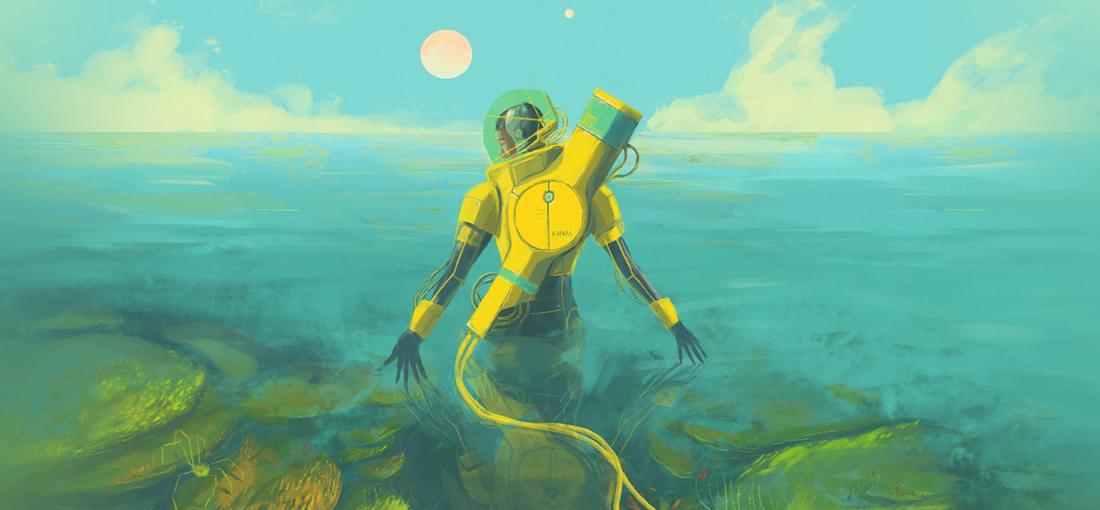
In Other Waters (IOW) is one of those games best described as an "Experience". Getting comfortable with the contrivances that make its premise work might take effort, but those who favor concept over visuals, might find IOW pretty satisfying! You play as an Artificial Intelligence exploring the breathtaking beauty of an aquatic Alien World. This might seem pretty straightforward, but the twist here is that you also see and interpret the world as an AI. That is to say: on a limited basis. Yours is a world of gauges, systems and vectors. The alien lifeforms flitting past you might be a wondrous sight for human eyes, but to you it's just a blip on the sonar screen. As an AI you also lack purpose and possess none of the wanderlust that would drive a human to explore, and so you start the game dormant. In comes Dr. Ellery Vas, who IS a real human, fully capable of appreciating the beauty all around. She also happens to be stuck in the same diving suit from which your AI is run, and so it becomes Vas who gives you purpose. It is only through her text-based amazement that you - the player - get to experience planet Gliese 677Cc. Now, the cynically inclined among us might say, "Great, another indie pixel-project that replaces graphics with a bunch of text." To those people I wouldn't recommend the game. However, I do belief that this visual simplicity serves a greater purpose. The minimalist design and music do enough to set an atmosphere, while and the oddness of the concept raises interesting questions on how we perceive and value life. What you perceive as a mere sonar blip, is an earth shattering discovery to Dr. Vas and it's kinda endearing. While the story does swerve too closely to the "human capitalism bad, nature good" sentimentality that's rife in gaming right now, I find IOW's take to be earnest and the new perspective interesting enough for me to recommend it. Just make sure you're willing to allow a high-concept title like this, the leeway it needs.
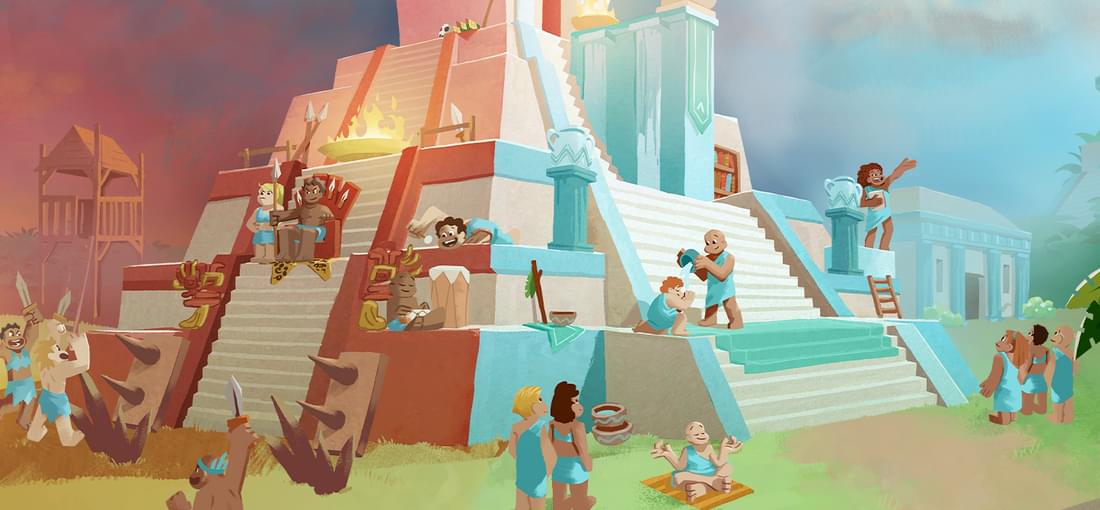
I'm pleasantly surprised by this Early Access version of Godhood, although I suspect I'm able to be more positive than other reviews, simply because I started playing at a point where it's finally shaping up. News is that the developer has downsized and that only a skeleton crew remains to finish it. Buying this game is a risk then, but after playing for about a dozen hours I'm glad I did. I feel like I've gotten my money's worth and the remaining devs appear just as loyal to their product as I had hoped. As it stands now (March 2020), Godhood's closest comparison might be to Darkest Dungeon, but with more emphasis on the management aspect than hands-on squad tactics. Your goal in this game is to grow a team of religious fighters and duke it out against others for converts and resources. With these you build a city, temples and religious tenents, which function as training facilities and lasting buffs to increase the strength of your team - forming the core gameplay cycle. The trick to the game is that the battles themselves are automatic, but the fighters themselves are suprisingly complex in what they are. Not only do the statistics you build in them have a profound influence on how your fighters opt to act during battle, but you get to pick a class for them that gives them a unique role to play, and an assigned rock-paper-scissors elemental system that gives them strengths and weaknesses. I might not be able to order my shield bearer to block a blow aimed at the vulnerable healer standing next to them once in battle, but if they do, there's a tangible appreciation that I was the one to give them the wisdom and skill to do so. Another added detail is how fighters eventually grow old and die. Not only is this adorable, but along with the deep customization options, you really begin to feel attached to your guys. Though development setbacks may have tampered the game's potential, this potential is still there and I'm willing to recommend Godhood on this basis.

When it comes to management sims, Megaquarium is relaxing, intuitive, easy to get to grips with and immediately gratifying. Running a zoo for fish is a novel concept and I have to applaud it for how streamlined the game is. The lay-out and aesthetics are very crisp and plonking down new piscine pastures is a joy. There are a few minor oddities in user interaction that are different from other management games - like info panels and door placement - but the Zen times to be had are worth getting used to. That said, Megaquarium did fail to meet certain expectations I had diving in, and I think it's worth elaborating. I thought this was a so-called "Ecology Puzzler", but Megaquarium fumbles a bit at that. Anyone played a little game called "Reus"? In it, you were the god for a 2D world, tasked with creating life. You'd create your own biomes and in them, put down flora, fauna and minerals. The cute thing was that all these things would support each other. A tile of wolves produces more resources when there's a tile of prey animals nearby. In return, the wolves would increase the wealth of mineral tiles in their territory. It took some puzzling with all tiles being interdependent, but you'd soon create a sprawling ecological web. You'd think Megaquarium - with its different fish species with each their different preferences - would be the same, but it doesn't quite clinch it. Since the game's most important resource is gained from getting visitors to spot a certain fish and it isn't awarded for repeats in other tanks, it veers oddly enough towards a playstyle that seperates species in their own tanks. There are apparently formulas and ways in which diversity is rewarded, but this feedback isn't as evident as I would've liked. But I feel min/maxing in the end, belies Megaquarium. Coming off other games in the genre where every decision is a life or death matter, just feeding the fish is a nice change of pace and Megaquarium presents it in a very accomplished package.
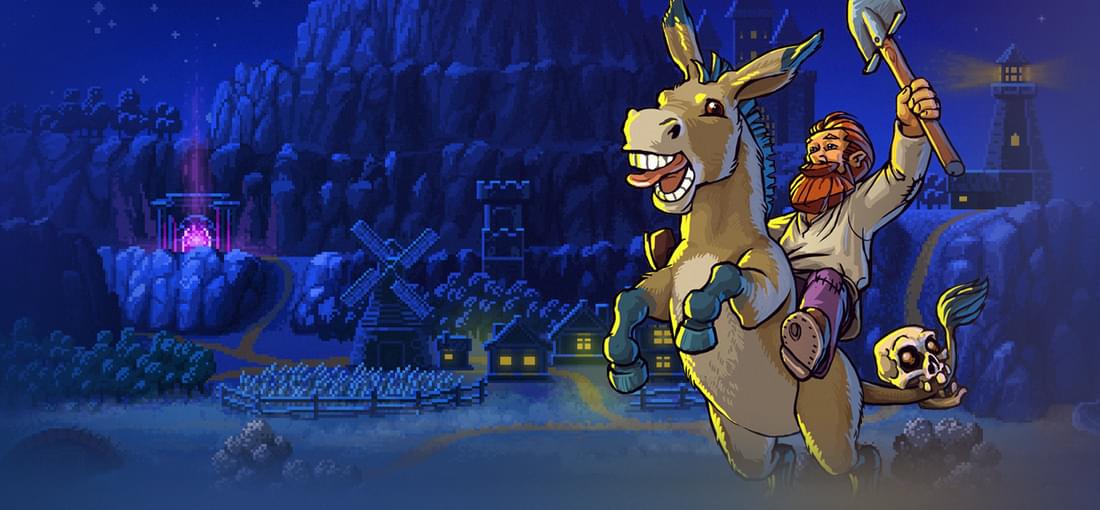
This review might be outdated, as the version of the game has since changed - GOG Team. If you're a GoG customer like me, because you like your gaming experiences to be complete and with a veneer of quality, then the state that Graveyard Keeper was released in on the August of 2018, fails to meet those expectations. In fact, if the developer fails to put in a lot more effort past this date and you're reading this review from a future where exactly that happens, I just can't recommend Graveyard Keeper and I'm writing this negative review as a reflection on the state it was released in. Buyer beware! As of the 18th of August 2018, there's : - Dialogue with NPC's and descriptive text for skills is sometimes missing and results in awkward references to files within the text. The developer has changed the length of a day from 6 minutes to 9 minutes, changed certain resources to be infinite from finite, and gave players teleport stones just 3 days after release. Some of these changes do not affect other post-release 1.0 save-games, facilitating a restart. Clearly the dev is still figuring out some of the basics and WILL trip you up. - The game requires you to have a certain amount of clairvoyance and use of wikias to play it. To give one example: Giving church sermons is your main moneymaker, but there's a quest-line that will lock you out of the ability to give sermons, unless you have enough money. Many items don't have a place to sell. - And for the cherry on top: There's constant mentioning of a town by all the NPCs, where important stuff that is clearly important to the world and story is happening, and to which you can buy an expensive in-game entry pass. Try to travel there however, and you're blocked off since the ENTIRE TOWN ISN'T IN THE GAME YET. This content is missing. It's clear that it's missing by the frayed edges of storytelling that doesn't go anywhere. I have enjoyed the slow progression you can make, building up your church to be better, but that doesn't wash away the feeling of playing a game that needed 3-6 more months in the oven.
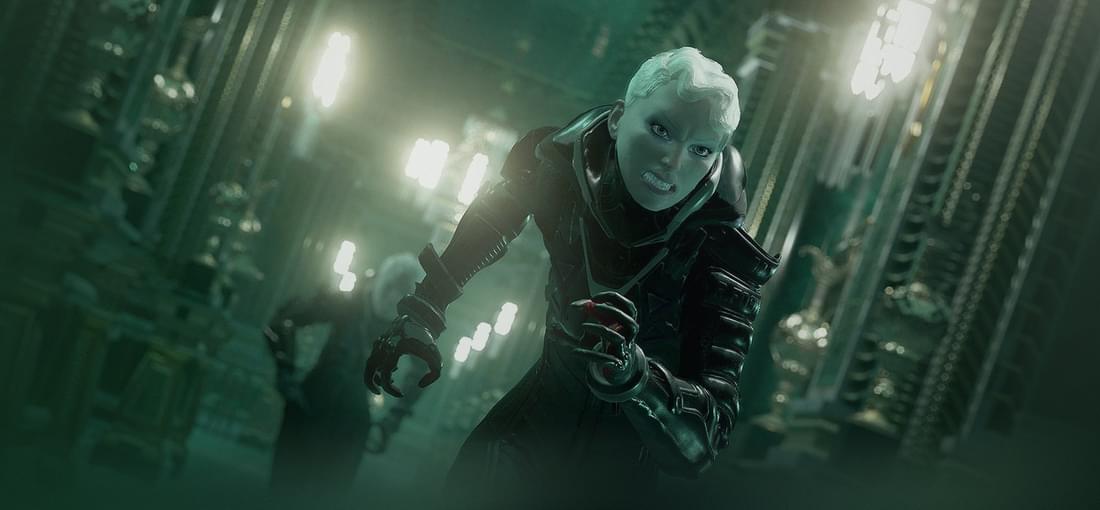
I'd recommend this game, but with a couple of reservations and caveats. The good news is that: 1) This game is drop dead gorgeous! I frequently dropped the controller and backed away from the screen to just gasp and admire the breathtaking geometry of miles upon miles of silver, jade and golden corridors, halls and mausoleums lit by diamond flames. Remember that scene from Lord of the Rings where Gandalf lit a torch in the underground Dwarven Halls? 2) As a stealth puzzle adventure, this game is unique. The vast palace complex you're in, is inhabited by a an enemy who remembers whatever special tricks you used the day before. If you ran out of an elevator, shot them in the face and snuck away, then they'll do the same to you for a while. Stealth however, is king. If they never manage to spot you, it doesn't matter if they can shoot. 3) The game's storytelling is phenomonal. The impossibility of the palace complex, blurs the lines between magic and science. There's this exotic, transangent, mystical quality to everything. The broad strokes in which the two main characters paint the universe around them, speaks to the imagination.There's also a really great, simple partnership between them, full of emnity and comradery, kept together by a simple goal. The bad thing? While the environment is drop dead gorgeous and the concept of a learning enemy is novel, these two things never evolve into something greater. Whenever I marveled at the aforementioned beauty of dozens of miles of palace hallways, it came with the dread realization that I would inevitably be repeating the same rote action across its length. The environment and enemy aren't dynamic enough to stay interesting. You're going to become overly familiar with the furniture and enemy patterns all too quickly. I finished the game, happy with my purchase, but expect ECHO to turn into a repetitive, sterile slog halfway through. Only the story and a new enemy type - right at the very end - made me pull through.
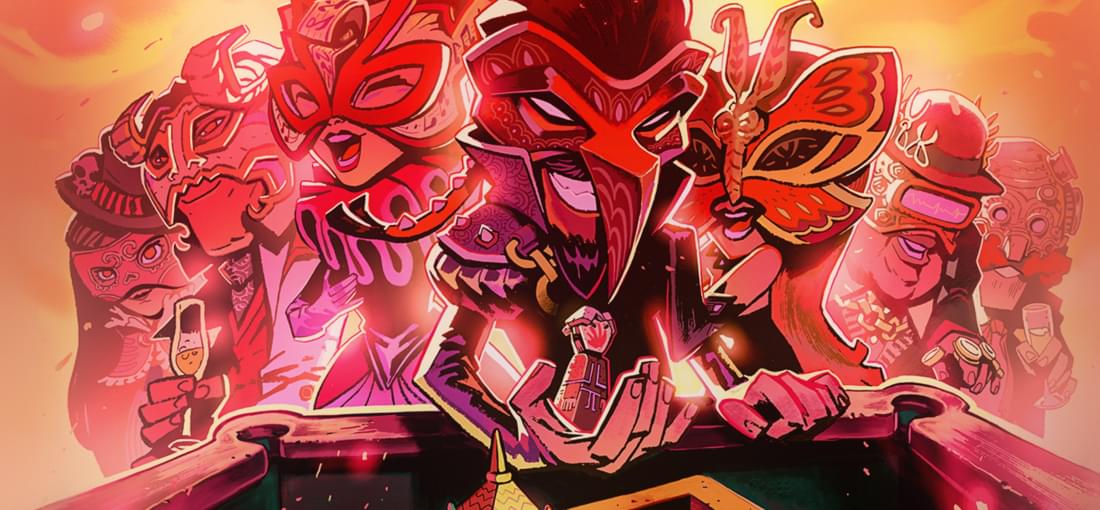
There's very little to dislike about this game and a lot to adore, but I'll blurt out the bad first: The game has some minor buffering issues. Controller input can be a little wonky, with your character turning around, rather than open a door. Other than that, I was - initially - somewhat disappointed by the puzzles. Going in expecting this to be a puzzle detective, I barely strained a brain cell for three quarters of it. All the puzzles are obviously telegraphed. Sneak up on the appropriate gaggle of Ne'er-do-wells and they'll handily exposition you the specifications of their circuitous scheme and how to foil it. No matter how obvious though, the act of foiling these plans (or not!) managed to remain fun throughout. The game has oodles of style and atmosphere and just watching the life in the mansion tick down is a true joy. Uncovering the details of a plot, sneaking about the mansion, spying and applying your interesting and well implemented skills, gives you a very "Thief"-like feeling of being the voyeur and saboteur to this beautiful, intricate world. It's all there for you to outwit, and be privy to the various overlapping intrigues as they run through each other like ornate clockwork. The urge to undo a tied ribbon, lies mostly in how pretty the bow is. The Sexy Brutale is in that, is one hell of a tantalizing knot in artwork, sound and snappy character design. Eventually, the intelligence of this game is found instead, in how it kept misdirecting my expectations. There were several moments where I thought I had the Sexy Brutale figured out, only for mounting dread to make me doubt, and then fear another theory. In the end, the game has one hell of a mind-boggling plot twist that makes everything feel like it made sense. I'll only say this: The storepage's tag of "mystery/adventure" suits Sexy Brutale best. Buy this game for the mystery, vague as that may sound, and I can promise you the inquisitive will be well rewarded with one hell of a journey.
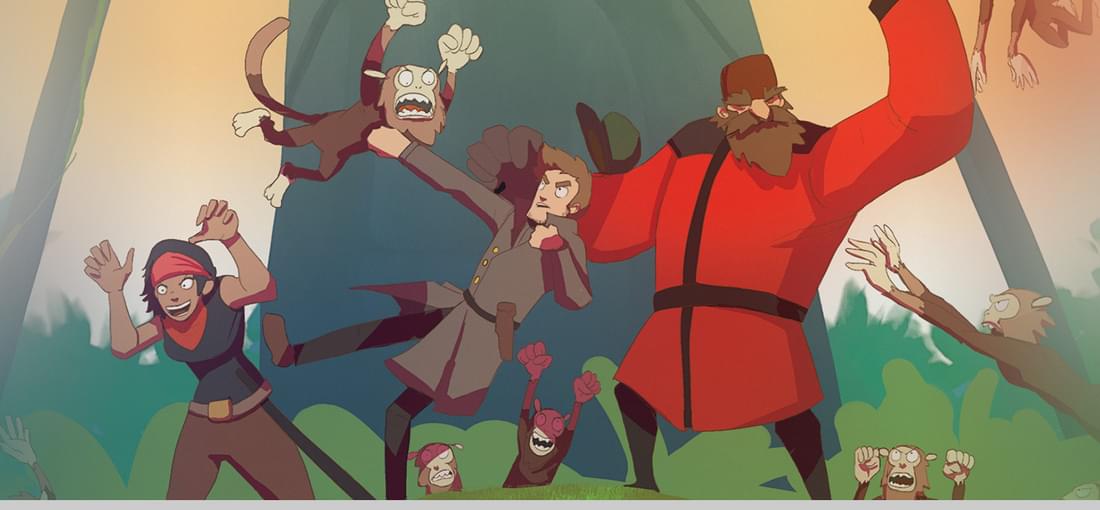
Don't be fooled by the stylized, lighthearted and upbeat presentation of this game. It is a mature, accomplished rogue-lite that adds innovative elements like none seen before in a hex-based strategy game and has a depth that gives the likes of FTL and Curious Expedition a run for their monies. Instead, think of the art-style as the additional gravy on top of a satisfying, bite-sized meal that can be dug into a hundred times over thanks to the endless possibilities of play. What gives the game it's depth, is the three approaches you have to battle. Seen the Trailer? Maria's insult of the native isn't just her standard attack; it is wholly different approach to battle. Every character has three different attacks: Aggressive, Devious or Friendly. That's right, a "battle" can be resolved entirely by being nice to your opponent and making friends out of them. Aggressive is as you expect it to be from any other game - pounding your adversary into a pulp - while the Devious approach manipulates your enemy into running off the battlefield scared, irritated and depressed. The Friendly-Devious-Aggressive system is in itself a fluid rock-paper-scissor scheme, whereby your choice to prosecute the fight in a certain way, will the mood of the entire battle. A mostly Aggressive team beats Friendly Teams, Devious beats Aggressive and Friendly beats Devious, but it isn't even that simple. You can change the stance of your team to let's say Aggressive and obtain those bonusses to counter Friendly Teams by making the majority of your attacks aggressive, but you can still get away with making the occasional Devious attack on an INDIVIDUAL enemy to depress and debuff them. Not only that, but by doing this you establish a reputation in the game and not all of the 20 characters are as good at any playstyle, or any one region, or as good at solving the game's other skill-based encounters. So what kind of explorer do you want to be? RE's possibilities are great and wonderful.